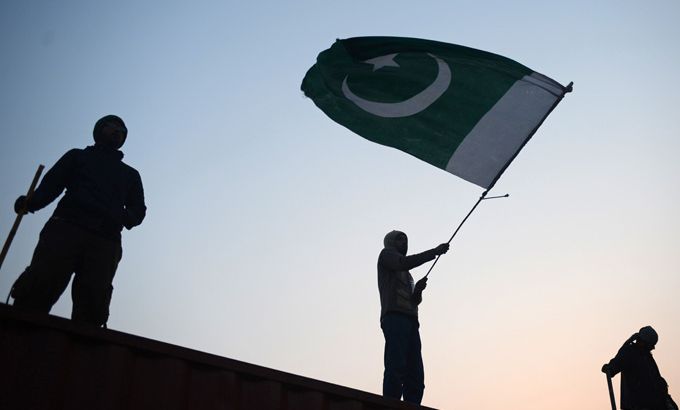
Pakistan: Putting democracy to the test
As some political parties are targeted by the Pakistani Taliban, we examine the impact on the upcoming elections.
Three of Pakistan’s main political parties have been singled out as legitimate targets for attacks, throwing campaigning for parliamentary elections into a deadly chaos.
|
“We condemn all the terrorist attacks because … these are attacks against Pakistan and its democratic system, they are an attempt to derail democracy and the elections and therefore the target at the end of the day is the whole Pakistani nation.“ – Shireen Mazari, spokeswoman for Movement for Justice Party (PTI) |
The threat has come from Tehrik-e-Taliban Pakistan (TTP) – the Pakistani Taliban. The parties concerned are considered secular, with no religious leanings.
They are, the Pakistan Peoples Party (PPP), which led the outgoing government, and its coalition partners – the Karachi-based Muttahida Qaumi Movement (MQM), and the Pashtun nationalist Awami National Party (ANP), the target of the latest attack in Peshawar on Tuesday.
The coalition is the first civilian government to complete its full five-year term in office in the country’s 66-year history.
But frequent attacks in major cities throughout Pakistan have heightened concerns over security and thrown the entire democratic process into question.
The parliamentary polls scheduled for May 11 will mark the first time an elected government will hand over power to another elected government.
A third period of military rule began to unravel when Pervez Musharraf shed his army general’s uniform in November 2007, to become a civilian president. But by August the following year, he had to resign in the face of moves to force him from office.
He was succeeded by Asif Ali Zardari, husband of the assassinated former prime minister Benazir Bhutto and co-chairman of PPP.
In April 2010, Zardari proposed sweeping constitutional reforms, aimed at transferring key powers from the office of president to that of the prime minister.
|
“It is also very worrying that because of this selective targeting of particular political parties, the credibility of this entire exercise [the elections] is coming into question even if it does take place because what is happening is that it is becoming clear this is simply not going to be a level playing field for all political parties.“ – Ali Dayan Hasan, director of Human Rights Watch, Pakistan |
Although there has been much criticism of the governing coalition, yet some argue the very fact that it has managed to see out its term is in itself a step forward.
Meanwhile, former president Pervez Musharraf, who still plays a divisive role in Pakistani politics, returned to Pakistan in March after four years of self-imposed exile in Dubai and London.
He claimed he wanted to save Pakistan, and lead his party into next month’s election, but a court has barred him from running, although he says he will appeal.
Musharraf is also embroiled in a number of other legal challenges related to his time in office, including high treason.
In addition to his legal and political battles, the Taliban has issued death threats against him, released in a video on his return. They threatened to use suicide bombers and snipers to kill him.
Musharraf angered the Taliban and other groups by joining the US in what it called the ‘war on terror’. And he recently admitted to striking a secret deal with the CIA – to allow the US to fly unmanned drones in Pakistani skies – a fact that has enraged many in the country.
To discuss this and the upcoming elections, Inside Story, with presenter Mike Hanna, is joined by guests: Shireen Mazari, spokeswoman for Imran Khan’s Movement for Justice Party (PTI); Hassan Abbas, a security analyst and former government official under Benazir Bhutto and Pervez Musharraf; and Ali Dayan Hasan, director of Human Rights Watch, Pakistan.
|
“… this was not something totally unexpected. I think this is a great transformative moment for Pakistan, transition from one democratic government to another and there are great political choices in front of people but at the same time we must recognise that there are some serious schisms within state, within society, which are coming up. “Pakistan has been facing these terrorist threats for quite some time, there are groups and there are elements who are against the very notion of democracy and their tool and their weapon is terrorism. they are using it and they are sending multiple messages.” Hassan Abbas, a security analyst and former government official |